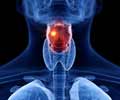Nischarin acts as a tumor suppressor that may inhibit the spread, or metastasis, of breast and other cancers.

The current research project, conducted in a knockout mouse model, found that Nischarin interacts with and controls the activity of a gene called AMPK. AMPK regulates metabolic stability. The research team discovered that Nischarin binds to AMPK and inhibits its activity. In Nischarin-deleted mice, the researchers found decreased activation of genes that make glucose. The study showed that Nischarin also interacts with a gene regulating glucose uptake. Blood glucose levels were lower in the knockout mice, with improved glucose and insulin tolerance.
‘Nischarin interacts with and controls the activity of a gene called AMPK which controls metabolic activity.’





As well, the researchers showed that Nischarin mutation inhibits several genes involved in fat metabolism and the accumulation of fat in the liver. The knockout mice displayed increased energy expenditure despite their smaller growth and appetite suppression leading to decreased food intake and weight reduction. "These studies demonstrate the potential of Nischarin as a regulator of metabolic diseases and suggest suppression of Nischarin function may be a valuable approach in the quest to cure such diseases as diabetes and obesity," notes Dr. Alahari.
According to the National Health and Nutrition Examination Survey (NHANES), 2013-2014, more than 2 in 3 US adults (70.2 percent) were considered to be overweight or obese. The American Diabetes Association says that in 2015, 30.3 million Americans, or 9.4% of the population, had diabetes.
Source-Eurekalert















